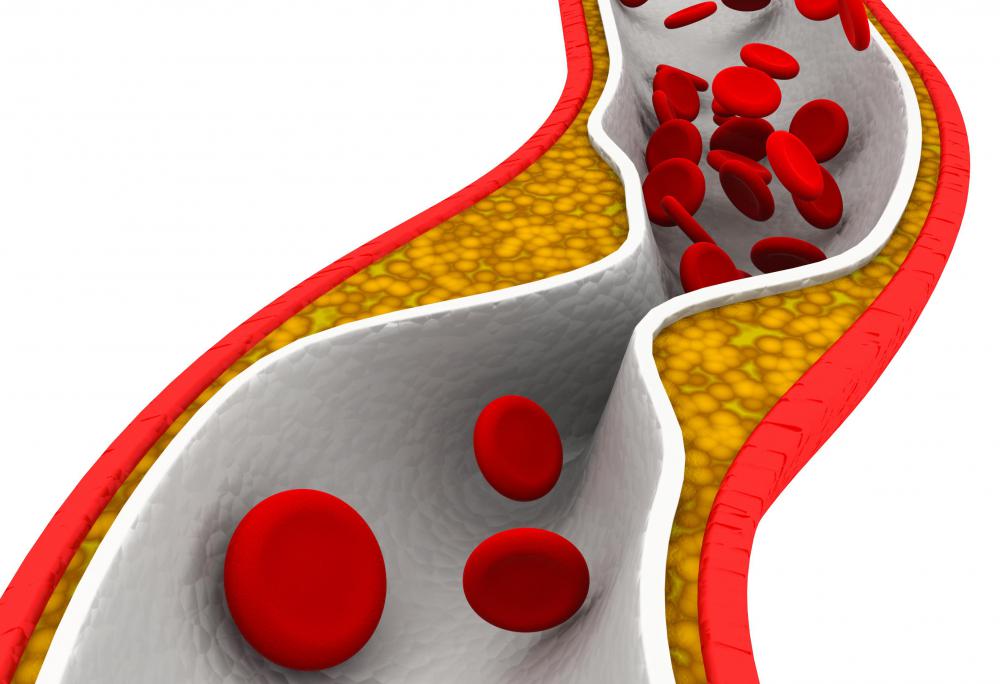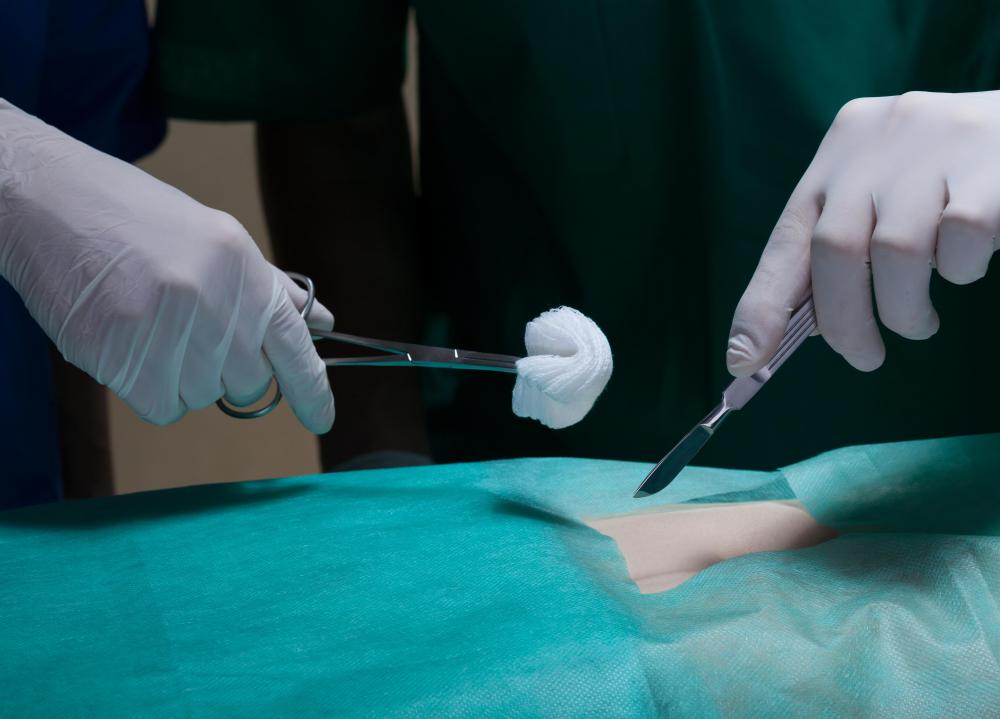At TheHealthBoard, we're committed to delivering accurate, trustworthy information. Our expert-authored content is rigorously fact-checked and sourced from credible authorities. Discover how we uphold the highest standards in providing you with reliable knowledge.
What is the Hepatic Artery?
"Hepatic" is a term that describes a relationship or a resemblance to the liver. Arteries are blood vessels that carry blood away from the heart to be delivered throughout the body. The hepatic artery, therefore, is a blood vessel that delivers oxygenated blood to the liver to literally keep this vital organ alive and give it the oxygen it needs to continue functioning properly. Every tissue in the body requires oxygen.
Color illustrations of the hepatic artery usually depict this blood vessel in red, the color of oxygen-rich blood, to help to distinguish it from the portal vein that lies next to it. Detailed illustrations might also show how the artery branches off from the abdominal aorta on its way to the liver. Blood that is carried by this artery not only carries oxygenated blood, it also carries cholesterol and other substances that need to be processed by the organ. The liver also receives blood from the intestines, and this blood eventually mixes with the blood received from the hepatic artery.

The hepatic artery, at the point of its entry into the liver, is not necessarily small in diameter, and it reaches all parts of the liver by branching out into a vast network of smaller vessels that lie next to veins. Cholesterol, which is made by the liver and also is delivered to it via this artery, is used by the organ to make a greenish-yellow fluid called bile. Bile is needed for efficient digestion, particularly the digestion of fats.

Shock resulting from blood loss poses a particularly high risk of irreversible liver damage if not enough oxygenated blood can reach the organ via its hepatic artery. The liver is one of the organs in which cell damage and cellular death can occur very rapidly in shock patients, even if vital signs can be restored. Abnormalities of the hepatic artery include narrowing or blockage that reduces the supply of oxygenated blood to the organ. Narrowing and blockage can be caused by injuries such as blood clots in the system, gunshot wounds, inflammation and surgical trauma.

A reduction in the flow of blood to the liver can also be the result of an infection, a severe loss of body fluids or some diseases. Sufferers of sickle cell anemia disease, for example, might experience the problem of insufficient blood flow through the artery that is the main supply of "fuel" for the organ. Ischemic hepatitis is severe damage of the liver that can result from a reduced blood supply to the organ, which is dependent upon this artery.
AS FEATURED ON:
AS FEATURED ON:

















Discuss this Article
Post your comments